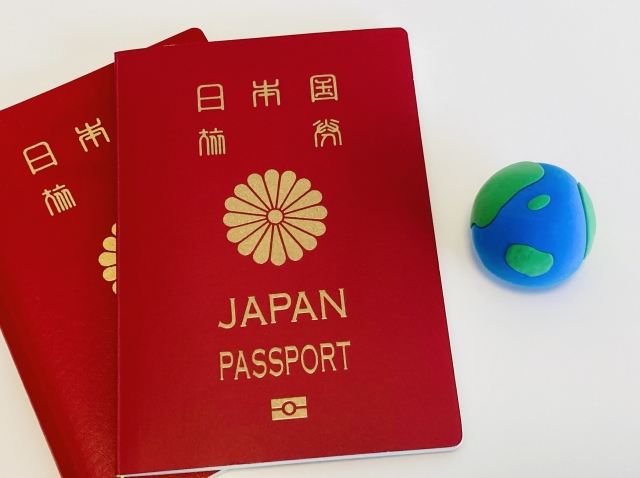I’m Takashi Akeyama, a representative of the Niseko VISA & Immigration Support Centre. As the only administrative office in Hokkaido specializing in VISA & Immigration and tourism, we help foreigners living in Hokkaido, mainly in Niseko, Otaru and Sapporo areas, to apply new or extend VISA, to change the status, such as working visas and spouse visas etc..
In this article, I will explain the difference between ‘Permanent Residence’ and ‘Japanese nationality’.
Nationality(国籍)
The big difference is changing the nationality. ‘Permanent residence‘ allow a person to stay in Japan with their original foreign nationality. In Japan, as a general rule, it is not possible to have two nationalities, and therefore, upon acquiring Japanese nationality, a person their original foreign nationality.
Name(名前)
As your name, you can change it when you have changed your nationality. You can decide for yourself among the following three types.
(i) Continue to use the name you used before.
(ii) To change the name you have used as a common name to your official name.
(iii) Decide on your own new name. It can be something completely unrelated to your original name, or a name written in kanji or hiragana.
You can give a name that is divided into “family name” and “first name”, which is commonly used by Japanese people.
Family Register(戸籍)
A new family register is created by submitting a ‘notification of naturalization’ to the municipal office of the place of residence. The notification of naturalization must be submitted within one month of acquiring Japanese nationality. If an unmarried foreigner or a foreign couple acquire Japanese nationality at the same time, a new family register is created. If the foreign spouse acquires Japanese nationality, he or she enters the family register of the Japanese spouse.
Period of stay and Residence Cards(在留期限と在留カード)
If you acquire Japanese nationality, you become a Japanese citizen and your period of stay will cease to expire. The obligation to always carry a residence card also ceases. On the other hand, if you are a permanent resident, your nationality itself remains as a foreign national, but the period of stay no longer expires, so you do not need to renew your status of residence. The procedure for renewal of status of residence is no longer required. However, the obligation to carry a residence card remains, and according to the law, the residence card must be renewed every seven years. As only the residence card is renewed, the procedure is much simpler than for the renewal of residence status.
Restrictions on employment(就労制限)
Once a person acquires Japanese nationality, work is no longer restricted in any way, just as it is for Japanese nationals. This is similar to obtaining ‘permanent residence’ status. In both cases, you are free to choose and change the company you work for and the job you do, just like most Japanese nationals. They can also engage in work related to the night business or sexual industry, which they cannot engage in with a “student” or “family stay” visa. In addition, restrictions on working hours, such as a maximum of 28 hours per week, are no longer imposed. Furthermore, foreign nationals with permanent resident status can continue to reside in Japan even if they leave the company for personal reasons or become unemployed due to retirement.
On the other hand, if a foreigner with “Engineer/Specialist in Humanities/International Services” status resigns from the company, they cannot continue to stay in Japan unless they are re-employed by another company where they can engage in the duties stipulated in this status of residence. For these reasons, it is recommended that foreigners who consider Japan to be their final home should acquire permanent residence status or apply for acquire Japanese nationality.
Social life(社会生活)
When a person acquires Japanese nationality, their civil rights become the same as those of Japanese nationals and they have the right to vote and be elected. This is another major difference between ‘permanent residence’ and Japanese nationality. It is possible to stand for election not only as a member or head of local government, but also as a member of the Diet, which means that it is possible to become a Prime Minister.
In some local governments, foreign nationals with ‘permanent residence’ status can also become local civil servants by taking and passing the local civil service examination. As for national civil servants, foreigners with permanent resident status are not allowed to take the recruitment examinations, but it is possible to challenge the examinations at the municipal and prefectural levels.
Deportation(退去強制処分)
‘Permanent residence’ only because the period of stay has ceased to expire, if you are involved in serious crimes such as drug offences or prostitution offences, or if you are imprisoned for one year or more, you will be deported and forcibly deported from Japan. If you have acquired Japanese nationality, you will be tried by law as a Japanese national, but as long as you are Japanese, you will not be subject to deportation or repatriation outside Japan.
Conclusion
By acquiring Japanese nationality, one’s legal status becomes the same as that of a Japanese national and they can engage in social and economic activities more freely. There are various requirements for applying for Japanese nationality, the first step is to fulfil the ‘residence requirement’, which is to have lived in Japan for at least five years. Those wishing to apply for ‘Japanese nationality’ should first check the records of their stay in Japan from the time of their arrival to the present, as well as their entry and departure from Japan.
The Niseko VISA & Immigration Support Centre help and support foreign nationals who are trying to overcome language, cultural and custom barriers and live as a member of Japanese society. If you have any questions or enquiries about this article, or getting Japanese nationality, please feel free to contact us by phone or via the ‘Free Consultation Form‘ on our website.




